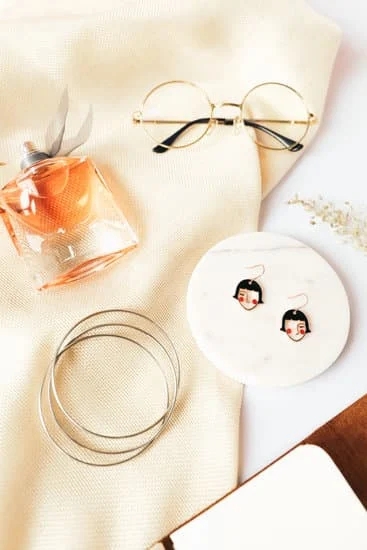Greece has a long and rich tradition of producing exquisite handmade jewelry that reflects the country’s history, culture, and artistry. This article explores the world of Greek handmade jewelry, from its traditional roots to its modern-day popularity in the global market.
For centuries, Greek artisans have been creating stunning handmade jewelry using a wide range of materials and techniques. From intricate filigree work to bold statement pieces, these creations showcase the craftsmanship and creativity that define Greek jewelry making. The use of traditional symbols and designs also adds a unique cultural significance to each piece.
In this section, we will delve into the history and tradition of Greek jewelry making, explore the materials and techniques used in crafting these beautiful pieces, and uncover the symbolism and meaning behind their unique designs. Join us on a journey through the world of Greek handmade jewelry and discover the artistry, heritage, and allure of these timeless treasures.
The History and Tradition of Greek Jewelry Making
Throughout history, Greek jewelry has been crafted using a variety of materials such as gold, silver, bronze, and precious gemstones. The techniques used in the production of handmade jewelry from Greece are often passed down through generations within families or specific regions. These traditional methods require a high level of skill and precision, making each piece unique and valuable.
Some of the most iconic symbols seen in Greek handmade jewelry include meanders, spirals, animals, and mythological figures. These symbols served as expressions of cultural identity and religious beliefs. They were also believed to bring good luck, protection, and prosperity to the wearer. The intricate designs found in Greek jewelry reflect the country’s rich mythology and historical heritage.
- Greek artisans have mastered the art of filigree work
- Common motifs include images from nature such as flowers or animals
- Ancient Greeks often included symbolic elements related to gods or heroes in their jewelry
The Materials and Techniques Used in Greek Handmade Jewelry
The art of crafting handmade jewelry in Greece goes back thousands of years and is deeply rooted in the country’s rich history and tradition. Greek artisans have been using a wide variety of materials and techniques to create unique and exquisite pieces that showcase their exceptional skill and creativity.
Materials Used
Greek handmade jewelry often features a mix of traditional and contemporary materials. Precious metals such as gold and silver are commonly used, along with semi-precious gemstones like turquoise, amethyst, and coral. Other natural materials like pearls, shell, and even leather are also incorporated into many designs, adding to the diversity of Greek handmade jewelry.
Techniques Employed
Skilled Greek artisans use a range of techniques to create their jewelry, including ancient methods that have been passed down through generations. Filigree, the delicate art of twisting and curling fine threads of metal to create intricate designs, is a hallmark technique in Greek jewelry making. Other techniques such as granulation (the fusing together of tiny metal beads), enameling, stone setting, and hand carving are also utilized to bring each piece to life.
Combining Tradition With Innovation
While staying true to traditional methods, modern Greek jewelers are also embracing innovation by experimenting with new materials and techniques. This fusion allows them to create contemporary pieces that appeal to a wider audience while still honoring the time-honored craftsmanship that has been synonymous with handmade jewelry from Greece for centuries. Handmade jewelry from Greece continues to captivate collectors worldwide with its exceptional quality and artisanal touch.
The Symbolism and Meaning Behind Greek Jewelry Designs
Greek handmade jewelry holds deep cultural and historical significance, with each design often carrying its own unique symbolism. For example, the popular evil eye motif is said to protect the wearer from negative energy and bring good luck. Meanwhile, the use of key symbols in Greek jewelry represents unlocking life’s mysteries and opportunities. These symbols are passed down through generations, making every piece of Greek jewelry rich with storytelling and tradition.
The craftsmanship of Greek handmade jewelry also plays a significant role in conveying meaning. The intricate designs and use of precious metals such as gold and silver reflect the high level of skill and artistry that goes into creating each piece. This attention to detail adds to the overall significance of Greek jewelry, making it highly coveted by collectors and enthusiasts around the world.
Furthermore, many Greek jewelry designs draw inspiration from ancient mythology, with depictions of gods, goddesses, and mythical creatures incorporated into the pieces. These symbols serve as a link to Greece’s fascinating history and cultural heritage, adding an extra layer of depth and meaning to the jewelry.
| Symbolism | Meaning |
|---|---|
| Evil Eye | Protection from negativity |
| Keys | Unlocking life’s mysteries |
| Ancient Mythology Depictions | Link to Greece’s cultural heritage |
Greek handmade jewelry is not only beautiful but also steeped in tradition, symbolism, and meaning. Each piece tells a story that connects wearers to Greece’s rich history while adding an elegant touch to any wardrobe.
The combination of ancient symbolism, skilled craftsmanship, and precious materials makes Greek jewelry truly timeless and cherished by those who appreciate its cultural significance. As such, it comes as no surprise that handmade jewelry from Greece continues to capture the hearts of people around the world with its profound beauty and meaningful designs.
Famous Greek Jewelry Designers and Their Signature Pieces
When it comes to handmade jewelry from Greece, there are several famous Greek jewelry designers who have made a significant impact in the industry with their unique and exquisite signature pieces. These designers have not only showcased the rich tradition and history of Greek jewelry making but have also brought a modern twist to their designs, making them highly sought after around the world.
Some of the most renowned Greek jewelry designers include:
- Ilias Lalaounis: Known for his meticulous craftsmanship and architectural designs, Ilias Lalaounis’s signature pieces often incorporate ancient motifs and symbols, creating timeless and elegant jewelry.
- Elena Votsi: With a background in sculpture, Elena Votsi’s jewelry designs are characterized by their bold and innovative forms, often inspired by nature and Greek mythology.
- Katerina Psoma: Katerina Psoma’s eponymous brand is celebrated for its colorful and vibrant pieces that capture the essence of Greek island life, featuring semi-precious stones and intricate metalwork.
These designers have not only gained recognition for their exceptional craftsmanship but have also played a crucial role in putting Greek handmade jewelry on the global map, attracting admirers from all corners of the world.
From statement rings to intricately designed earrings, these Greek designers continue to captivate audiences with their unique interpretations of traditional Greek jewelry, cementing their place as leading figures in the industry. As a result, handmade jewelry from Greece has garnered a devoted following among those who appreciate artistry, heritage, and timeless elegance.
How to Care for and Maintain Greek Handmade Jewelry
Greek handmade jewelry is not only beautiful, but also has a rich history and tradition. To ensure that your Greek handmade jewelry pieces remain stunning for years to come, proper care and maintenance are essential. Here are some tips on how to take care of and maintain your prized Greek jewelry collection.
Storage
When not wearing your Greek handmade jewelry, it is important to store them properly to prevent damage. Keep each piece in a separate pouch or compartment to avoid scratches and tangles. Avoid exposing your jewelry to extreme temperatures or humidity, as this can cause discoloration and tarnishing.
Cleaning
Regular cleaning is important to maintain the luster of your Greek handmade jewelry. Use a soft microfiber cloth to gently wipe off any dirt or residue from the surface of the jewelry. For more stubborn stains, you can use a mild soap solution with warm water, but be sure to dry the piece thoroughly afterwards to prevent any water damage.
Avoiding Chemicals
Chemicals such as perfumes, lotions, and hairsprays can be damaging to Greek handmade jewelry. It’s best practice to put on your jewelry after applying these products to avoid direct contact. Additionally, remove your jewelry before swimming or engaging in activities that involve exposure to chlorine or saltwater.
By following these simple guidelines for caring for and maintaining your Greek handmade jewelry, you can preserve their beauty and quality for generations to come. With proper storage, regular cleaning, and mindful wear, your treasured pieces will continue to dazzle with their timeless elegance and craftsmanship.
The Growing Popularity of Greek Handmade Jewelry in the Global Market
Greek handmade jewelry has been gaining significant popularity in the global market in recent years. The craftsmanship and unique designs of these pieces have captivated the attention of jewelry enthusiasts worldwide. The appeal of Greek handmade jewelry lies in its traditional and cultural significance, as well as its high-quality materials and meticulous workmanship.
One reason for the growing popularity of Greek handmade jewelry is the emphasis on authenticity and tradition. These pieces are often crafted using age-old techniques that have been passed down through generations, resulting in jewelry that not only reflects the rich history of Greece but also carries a sense of heritage and storytelling. The use of traditional Greek motifs, such as the Key of Life or the Evil Eye, adds to the allure of these handcrafted pieces.
Additionally, Greek handmade jewelry is highly regarded for its use of top-quality materials and exceptional craftsmanship. Many artisans utilize precious metals like gold and silver, along with gemstones, pearls, and intricate filigree work to create stunning statement pieces.
Each item is carefully crafted with attention to detail, ensuring that every finished product is a work of art. As a result, Greek handmade jewelry has gained a reputation for its superior quality and exquisite beauty, making it a sought-after choice for discerning collectors around the world.
Overall, the increasing demand for Greek handmade jewelry can be attributed to its timeless appeal, cultural significance, and exceptional craftsmanship. As more people seek out unique and meaningful accessories, Greek artisanal jewelry continues to captivate consumers with its rich history and distinctive charm.
| Greek Handmade Jewelry | Global Market |
|---|---|
| Traditional techniques passed down through generations | Increased demand from discerning collectors |
| Use of top-quality materials like gold, silver, and gemstones | Emphasis on authenticity and tradition |
| Cultural significance reflected in design motifs | Superior quality and exquisite beauty |
The Future of Greek Handmade Jewelry
In conclusion, the future of Greek handmade jewelry looks promising with emerging trends and innovative designs that continue to captivate the global market. As traditional techniques are combined with modern influences, Greek jewelry designers are able to produce unique and timeless pieces that appeal to a wide range of consumers. The use of quality materials and skilled craftsmanship ensures that handmade jewelry from Greece maintains its reputation for excellence.
The increasing popularity of Greek handmade jewelry in the global market is a testament to its enduring appeal. With an emphasis on authenticity and individuality, Greek jewelry has carved a niche for itself among discerning buyers who appreciate the artistry and cultural significance behind each piece. The fusion of ancient symbolism with contemporary aesthetics creates an alluring blend that sets Greek handmade jewelry apart from mass-produced alternatives.
As consumer demand for sustainable and ethically-made products continues to grow, Greek handmade jewelry is well-positioned to meet these needs. By upholding traditional methods and supporting local artisans, the industry is able to maintain its integrity while adapting to evolving preferences. With a focus on quality over quantity, Greek handmade jewelry is poised to thrive in the years ahead, offering discerning customers exquisite pieces that embody the heritage and creativity of Greece.

Welcome to my jewelry blog! My name is Sarah and I am the owner of this blog.
I love making jewelry and sharing my creations with others.
So whether you’re someone who loves wearing jewelry yourself or simply enjoys learning about it, be sure to check out my blog for insightful posts on everything related to this exciting topic!





